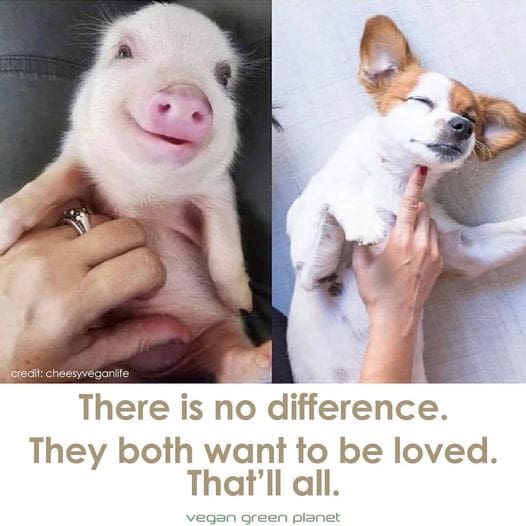Factory farming, a cornerstone of modern food production, hides a grim reality behind its façade of efficiency and affordability. This industrial system sacrifices animal welfare, pollutes the environment, and endangers human health in pursuit of profit. Animals endure unimaginable suffering in overcrowded conditions, ecosystems are degraded by waste and deforestation, and antibiotic misuse fuels the rise of drug-resistant bacteria. As these hidden costs continue to mount, it’s clear that factory farming is unsustainable for our planet’s future. By shedding light on its profound impacts and advocating for ethical alternatives like regenerative agriculture and local food systems, we can pave the way towards a kinder, healthier world
Factory farming, also known as intensive animal farming, has become the dominant method of food production in many parts of the world. While it may contribute to meeting the demand for affordable food, the hidden costs are too severe to ignore. Factory farming poses a grave threat to not only the welfare of animals but also to human health and the delicate balance of our planet’s ecosystems. In this post, we will delve into the various aspects of this issue and explore the devastating impacts of factory farming.

Animal Welfare Impacts
Factory farms prioritize profit over animal well-being, leading to unimaginable cruelty and confinement for the animals involved. In these industrial facilities, animals are often housed in cramped and inhumane conditions, stripped of their natural behaviors and deprived of a decent quality of life.
The consequences of this system are far-reaching. Animals raised in factory farms endure physical and psychological harm as they are subjected to over-crowding, extreme stress, and a lack of adequate space to move around. Pigs, cows, and chickens, among others, are crammed into small cages or pens, unable to engage in natural behaviors or interact with their environment. This confinement can lead to physical ailments such as joint problems and muscle atrophy, depriving them of even the most basic level of comfort.
Furthermore, factory farming relies heavily on the excessive use of antibiotics to keep animals alive in these unnatural and congested environments. This abuse of antibiotics contributes to the rise of antibiotic-resistant bacteria, posing a threat to both animals and humans alike. Additionally, the crowded and unsanitary conditions found in factory farms provide the perfect breeding ground for zoonotic diseases, which can transfer from animals to humans and potentially spark devastating pandemics.
Environmental Consequences
The environmental impact of factory farming cannot be ignored. These facilities generate vast amounts of waste, which is often improperly disposed of, leading to severe water pollution and degradation. The excessive use of chemicals and antibiotics in the livestock production process results in nutrient runoff, contaminating nearby waterways and causing imbalances in aquatic ecosystems. Whole ecosystems suffer, including the loss of fish populations and other aquatic life.
Moreover, factory farming contributes significantly to deforestation and land degradation. Massive amounts of land are required to sustain these operations, leading to the clearing of forests and the destruction of habitats for countless species. The loss of biodiversity resulting from deforestation disrupts delicate ecosystems and threatens the overall health of our planet.

Human Health Concerns
Factory farming not only jeopardizes animal welfare and the environment but also poses significant risks to human health. The intensive and often unsanitary conditions found on factory farms increase the likelihood of foodborne illnesses, as animal products become more susceptible to contamination. The potential for outbreaks of diseases such as salmonella and E. coli is a constant concern.
The workers employed in factory farms also suffer from occupational hazards. Poor working conditions, exposure to harmful substances, and the repetitive nature of their tasks subject them to respiratory issues, infections, and other health problems. It is crucial to recognize and address the vulnerability of these workers, who bear the brunt of the industry’s dark side.

Sustainable Alternatives and Solutions
Thankfully, there is hope. Sustainable alternatives to factory farming exist and offer a more ethical and environmentally-friendly approach to food production.
Organic and regenerative farming practices prioritize animal welfare and sustainability. By avoiding synthetic chemicals, antibiotics, and relying instead on natural methods, organic farming protects the health of animals, humans, and the environment. Encouraging the widespread adoption of regenerative farming practices can help restore soil health, preserve biodiversity, and mitigate climate change by promoting carbon sequestration.
Furthermore, supporting local and small-scale agriculture plays a vital role in reducing the reliance on factory farming. By choosing locally sourced and sustainably produced food, consumers can contribute to the growth of local economies and the preservation of agricultural diversity. Governments should prioritize small-scale farmers and provide support to help them thrive and compete against larger industrial operations.
Conclusion
The impact of factory farming on animals, humans, and the planet is undeniable. From the abhorrent treatment of animals to the environmental destruction and risks to human health, factory farming is a system that must be urgently addressed and reformed. By promoting sustainable alternatives and making conscious consumer choices, we can collectively work towards a future that values the well-being of all and ensures a sustainable food system for generations to come.

4.9/5 - (7 votes)



